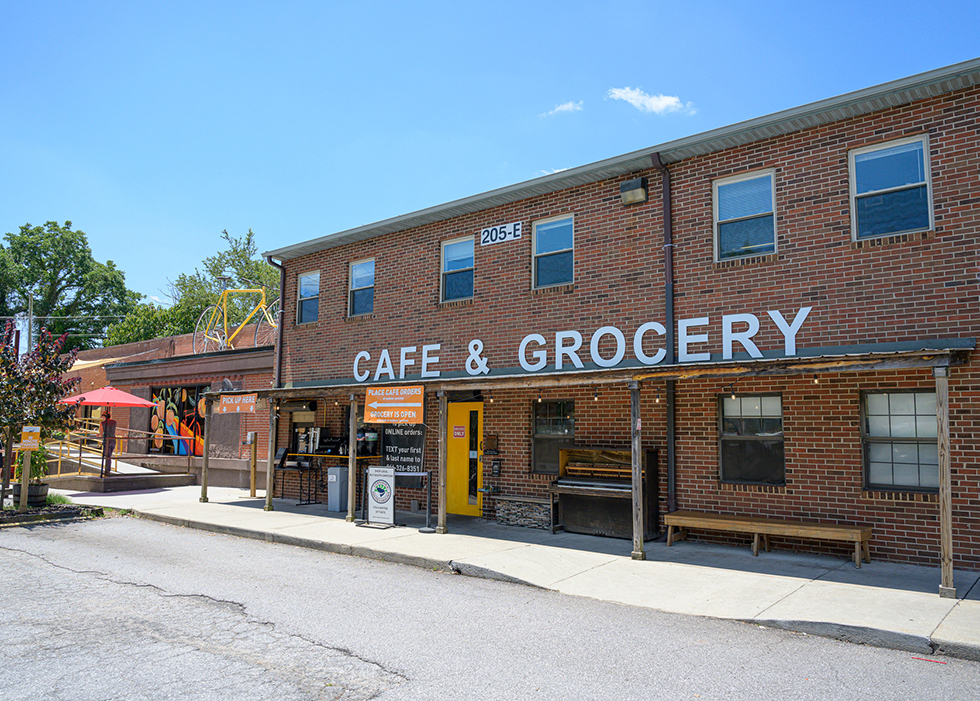Bringing like-minded people together has resulted in at least eight marriages and some lasting friend groups, according to Mary Walsh, co-owner of Swamp Rabbit Café & Grocery in Greenville, South Carolina.

Walsh, who opened the store in fall 2011 with co-owner Jacqueline “Jac” Oliver, said, “When you build a place where people will interact with each other … magical stuff like that just kind of happens.”
Neighbors run into each other often to get caught up, and moms who bring their kids to the store’s play area have formed lasting friendships, she said.
Walsh and Oliver became friends when they worked together at an environmental nonprofit in Greenville. Originally from Jersey City, New Jersey, Walsh, a civil engineer, was accustomed to not needing a car, and she missed not being able to walk or bike everywhere when she moved south in 2006. But she also discovered the taste of a freshly picked strawberry, which she had not experienced in New Jersey.
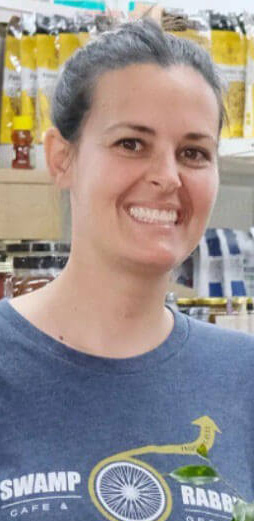
“You don’t realize how much more amazing it is,” she said.
Meanwhile, Oliver, a biologist, had developed many farmer connections.
The friends realized they “shared a passion for really good food from local farmers,” she said. “So, our big driver to open the business was our shared appreciation for local farmers and wanting to support them and wanting to have an outlet for them to sell their goods year-round.
“Secondary to that passion, it was also really important for us to have fresh food with really good ingredients. That’s how we decided to open our bakery and kitchen, too,” Walsh said.
The 28-mile Swamp Rabbit Trail Network had opened at the beginning of 2008, connecting Greenville and Travelers Rest. The walking and bicycling greenway runs along the Reedy River as well as an old railroad corridor and city parks.
“We said, ‘Well, this is perfect, because we can be a place where you can safely walk or bike to and grab your groceries or grab a coffee,” Walsh said.
They opened their store at 205 Cedar Lane in Greenville in a building that had been a meat-packing plant in the 1940s and ’50s and an electrical supply store after that. It had been closed for a number of years, and anything of value in the abandoned building had long been stripped away.
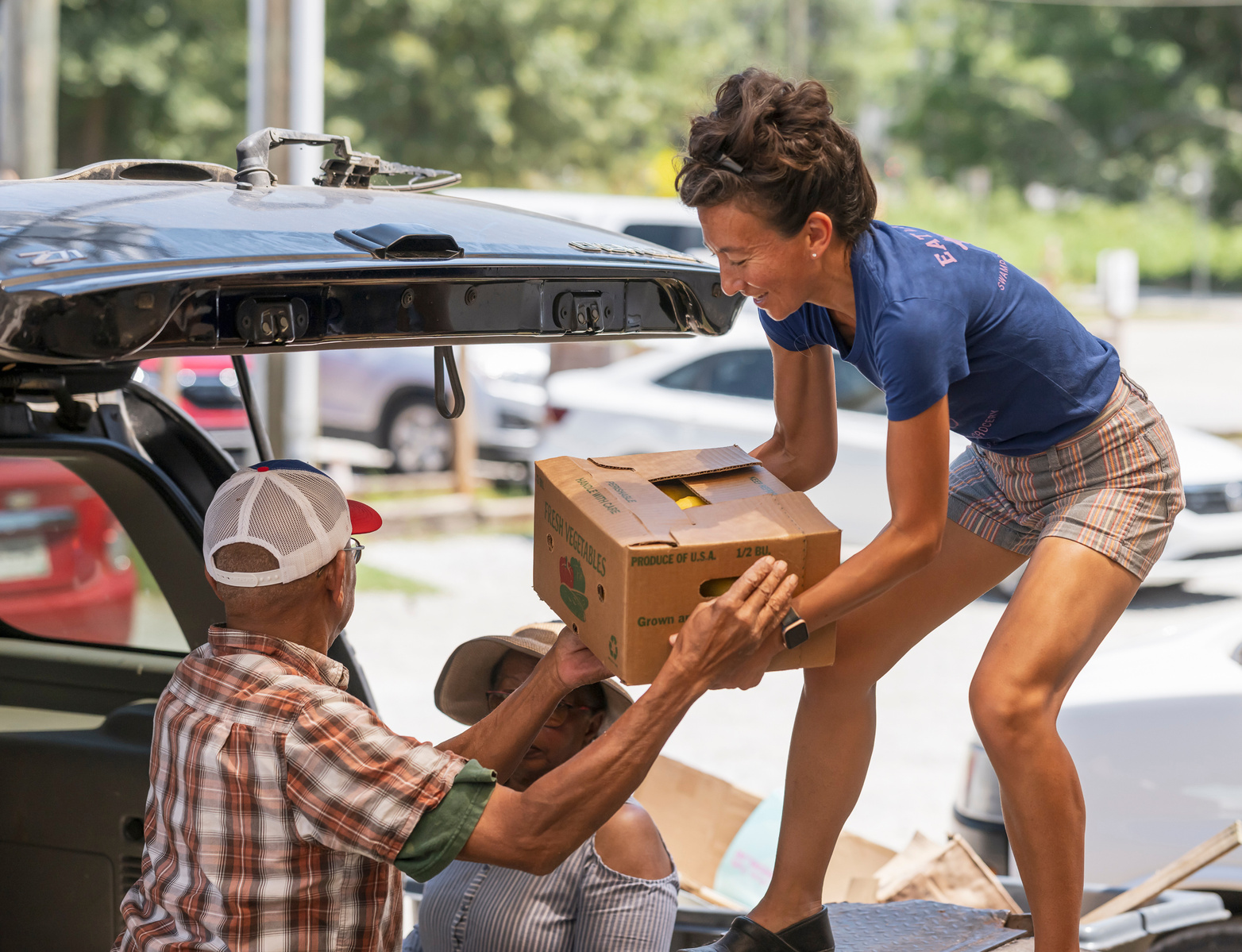
The building and property were purchased by a businessman who lived in the community, Scott McCrary, when the Swamp Rabbit Trail was still under construction, Walsh said. He cared about the community and wanted to make sure the site didn’t become “a scrap metal yard or something you wouldn’t want to ride your bike near,” she said.
When looking for a place to open their store and café, Walsh discovered the property and found out McCrary owned it. The friends told him their plans. McCrary took a chance on them, though “we didn’t really have the qualifications you would need, except we just were willing to work non-stop,” Walsh said.
The women took their life savings and procured a loan to make the space usable again, and McCrary became their landlord.
“He really was instrumental in us becoming a business,” she said.
For the first couple of weeks the store was open, Walsh and Oliver and their husbands – who had full-time jobs outside the store – did everything. They were working about 80 hours a week, with Walsh doing all the baking. They made sandwiches, kept the groceries stocked and ran the checkout counter.
When the husbands finished their day jobs, they’d stop by and mop floors or do whatever was needed to close down for the night. Within just a couple of weeks, they knew they couldn’t keep up that pace long term and needed help.
Today, among the bakery, kitchen, café grocery and food hub, there are about 150 employees. The different divisions have their own dedicated teams and often their own manager.
“We have our values, and we do look for [similar values in our team members] because it is hard to do all the work unless you’re passionate about it,” Walsh said. “We try our best when we’re hiring to make sure that people are aligned with our mission and they care, because it makes such a big difference in performance and even employee happiness.”
Equal parts café and grocery
The Swamp Rabbit Café & Grocery is split about 50/50 between the café and grocery. 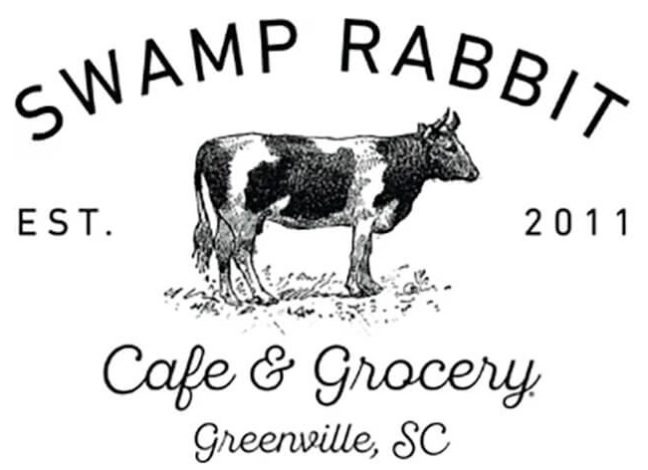
The store features many locally sourced items – it has more than 400 farmer and food maker partners, up from about 100 about 10 years ago – including produce, dairy products, packaged foods and general merchandise like soaps.
Asked if the store could be considered a health food store, Walsh said, “We don’t necessarily view ourselves [that way]; we see ourselves more as a local community-, local farmer-, community-focused grocery store whose standards do match those of a natural food store. Like, we’ll never have artificial food, diet or high fructose corn syrup in our products.”
While they prefer to sell organic produce, they also look at the big picture.
“It’s really hard to find local and organic strawberries right here, and so while we always look for them – and whenever we can find them we carry organic strawberries – we also think it’s equally important that all strawberry farmers can stay in business,” she said.
On the café side, the store offers sandwiches, coffee and drinks such as smoothies, as well as prepared foods for customers to take home.
Walsh’s mom is Chinese and grew up in Brazil, while her husband is from Turkey, which has lent a little international flair to the prepared food and bakery offerings. The pão de queijos are cheese balls served in most Brazilian coffee shops. They are naturally gluten free and “delicious,” Walsh said.
The store also is known for its stecca bread. Walsh began making it before they opened the store. She was such a dedicated baker that she would set her alarm for 3 a.m. to get up and turn the dough.
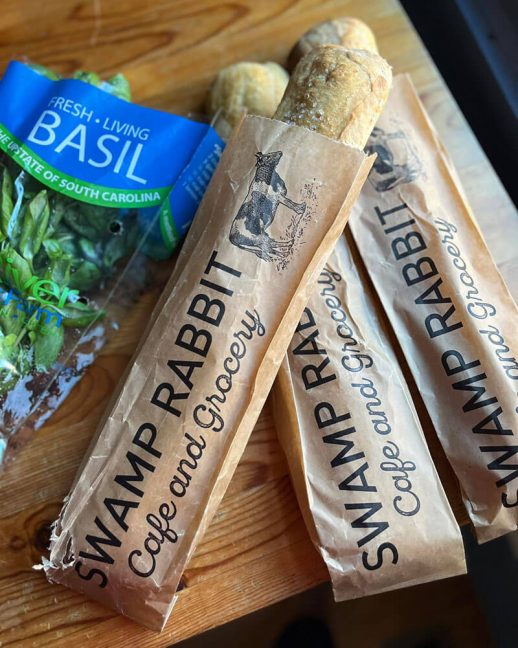
During down times at the store after they first opened, she would make the bread there in the café. A customer came in and asked about the delicious aroma. They tried the bread and loved it. Now, there’s an entire team at the store that makes loaves of stecca bread fresh every day.
“It’s kind of like a baguette, but it’s brushed with olive oil and and topped with coarse salt, and it has kind of become like a community staple,” she said. “Everyone knows about stecca bread. That’s just an important component to our business, and it’s kind of become a fun community bonding point.”
More traditional American dishes also are represented, but Walsh said the most important factor to most of their customers is what’s going into the dish, regardless of cuisine.
“We have a lot of people who want just a clean-ingredient, simple-ingredient meal without any high fructose corn syrup and local food whenever it’s available,” she said, adding that the menu changes seasonally.
This year, the Swamp Rabbit Café & Grocery added a separate building, about a three-minute walk from the store and café, to house their warehouse and commissary kitchen.
Giving and getting support
Swamp Rabbit also functions as a food hub for local restaurants, something the owners got into when their local product distributor shut down a few years ago. They take orders from the restaurants and then submit one large order to the farmer.
“What it does is allow the farmer get one giant order from us; they don’t have to worry about trying to sell their lettuce, they don’t have to worry about driving to 20 different stops a day,” Walsh said.
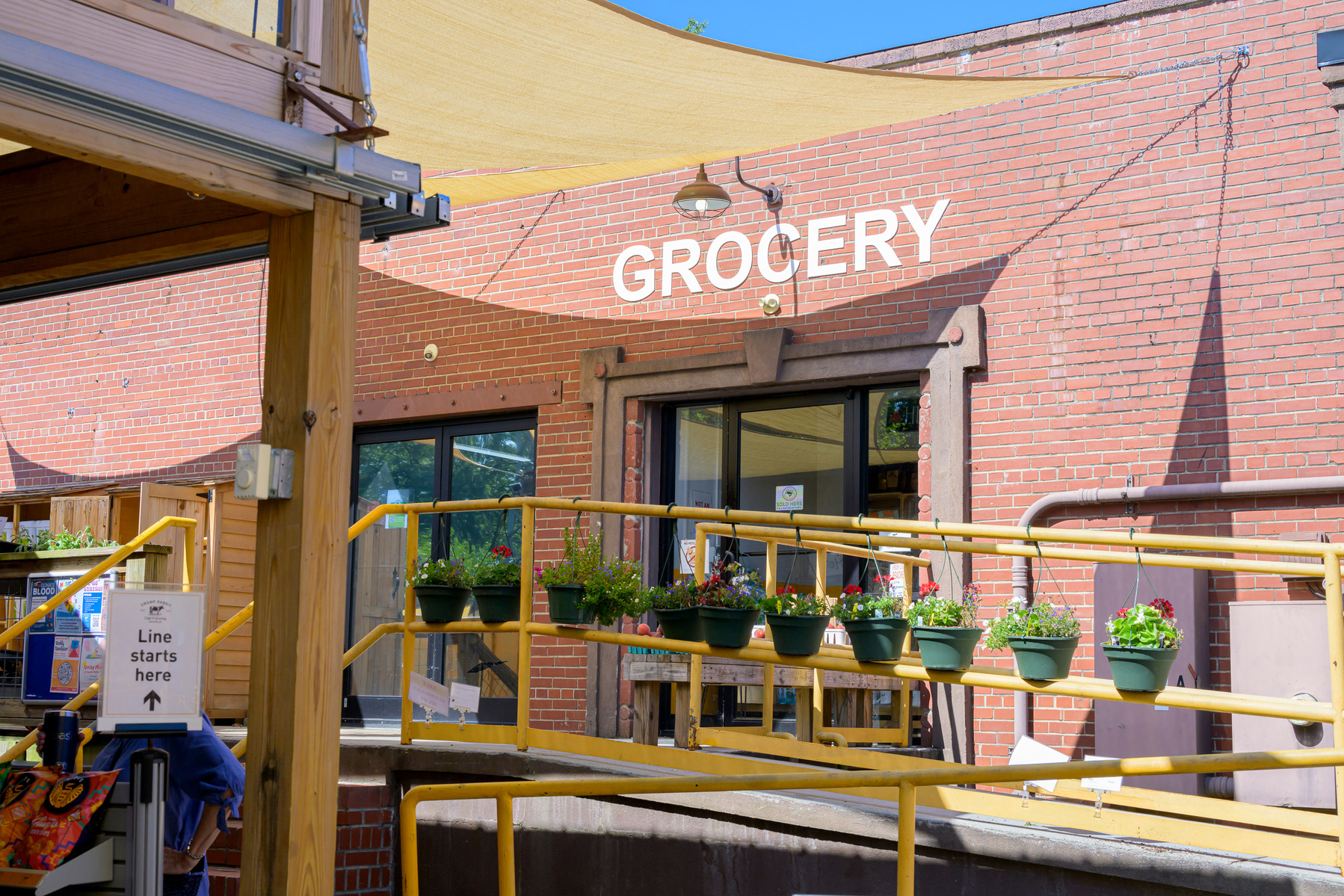
“Because we do that, we’ve seen some cool things. A farm was able to buy a tractor because we are pretty reliable that we’re going to buy $2,000 of product from them every week, and that made all the difference for them.”
While the store will always focus on local farmers and food makers, there are certain mainstream grocery items that people expect to buy. Specialty distributors such as KeHE and UNFI step in to supply necessary grocery items.
Swamp Rabbit Grocery & Café is a member of INFRA – the Independent Natural Food Retailers Association – and was featured on the “Common Roots” podcast series celebrating INFRA’s 20th anniversary this year.
They learned about the INFRA cooperative just a few years ago, but it took a while to get to the point of engaging.
“Every store owner is busy, and it took us a few years to really sit down and talk to INFRA, join and then start actively appreciating the benefits and the advice we get from peers and networking and from the staff,” Walsh said. “We talk to [INFRA] regularly, we talk to peers and they’ve connected us with a lot of resources.”
Whether the friends will open more stores is undetermined at this point.
“Because we are so involved in the day to day, me and Jac, we try to be really careful about thinking about another location,” said Walsh, who handles more marketing, foodservice and store operations-related tasks while Oliver handles duties more related to facilities, accounting and HR.
“We think more businesses like ours would only be a good thing because we’re supporting farmers,” she said.
[RELATED: Southern Flavors: Unpacking Unique Supermarket Scene In Southeastern U.S.]

